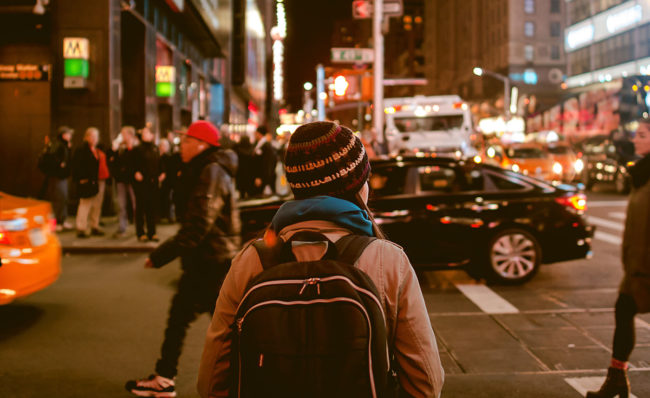Humans Behind Homelessness: The Realities of Sleeping Rough
July 19 2018
Originally written for Parity Magazine June Edition
Compiled and written by Morgan Cataldo, Lived Experience Service Development Worker, Launch Housing.
The insights in this article come from people with a lived experience of homelessness in various forms, who wished to contribute to the conversation of rough sleeping by providing a slightly different perspective.
Our hope is to add to the conversation through sharing the realities sleeping rough brings and to remind the audience that no person moves through their homelessness journey in the same way as another.
‘You can’t plan forward when you have to watch your back’: navigating the service system.
We forget to remember the incapacitating effects of homelessness. Those who are sleeping rough are often told to ‘plan forwards’, as though strategising is possible whilst your basic needs are not being met.
‘Every service wants you to prioritise their service, but you can only be at one place at one time. So many people have competing, intersectional issues. How can you prioritise housing over health? All this while you are trying to find a place to sleep or even stay awake. Wilful blindness.’
‘How can you operate on a schedule when you don’t even have a base?’
‘Having to study or work to continue to even receive payments and how difficult that is — the near impossibility of keeping up with Centrelink appointments and paperwork. People ask me why I would give my money to those who are sleeping rough and it’s because I know they aren’t always guaranteed support or even have access to Centrelink payments. I understand the constant fear they’re experiencing.’
(Image: Unsplash)
‘Becoming so severely sleep deprived and also having to wait such incredible amounts of time to just be seen. I thought it was ironic that I was constantly asked what my ‘recovery goals’ were. The system is well intentioned but they do not understand. For example, I was often told by workers, ‘make sure you keep up fluids’. They couldn’t grasp that I would have to measure how much water I drank to make sure I could find and access a toilet when I needed one.’
You do not really know what it is like until you have been there yourself. It is common for the general public to place blame on those experiencing homelessness for their individual decisions without understanding the outside forces and systemic barriers that have contributed to their experience.
‘Knowing the extraordinary amount of middle-class bias I had towards people, such as drug-users, until I experienced [homelessness] up-front. Now I know, ‘no wonder’ [they take drugs] — to escape.
‘My whole life became completely measured. I was considered asset rich and cash poor and so I had to wait for over six weeks for any money – that was when I had to rely on true charity and I felt so embarrassed.’
‘I remember my first visit to a crisis access point. I went up to the front desk and said, “I’ve been a taxpayer — house me!”’
Knowing where and when to access crisis and housing support services is not always obvious. It is a common experience for those at-risk of and already experiencing homelessness not to know where to access support or how to navigate the complexity of services.
‘I got help by chancing upon a mobile van that provided access to services. Without that, I had no idea how to or where to go. There was no consideration of how far away certain services are between each other. There was no assistance to help get to all the meetings or consideration about the fact that you’re human.’
The insights from this blog are from our Lived Experience Advisory Group (LEAG) who have each experienced homelessness in its various forms. The members have chosen to publish this article under the LEAG banner, keeping their individual identities in relation to specific quotes anonymous.
Read the second part in this three part series Humans Behind Homelessness.


